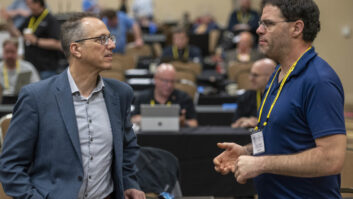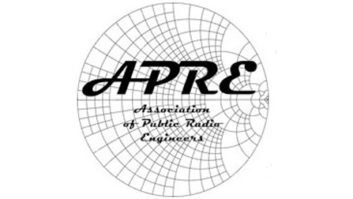FCC Commissioner Anna Gomez continues to highlight commission policies she believes infringe on First Amendment rights and media diversity. In addition, she warns that relaxing broadcast ownership limits could undermine the values of the free press further.
Gomez, the lone Democrat commissioner at present, delivered the keynote address at the Grassroots Radio Conference on Friday in Spokane, Wash. The annual conference celebrates community radio and attracts noncoms and LPFM broadcasters. The seminar draws station staff and policy advocates interested in community radio.
In recent months, Gomez has been outspokenly critical of the Trump administration for what she calls the “weaponization” of the FCC — using the commission as a means to help silence critics of President Trump’s policies through censorship and control. She opened her remarks at the conference by saying she is one of the lone remaining minority voices serving on any independent government agency in Washington.
“The First Amendment is foundational for democracy, and today that foundation is trembling under constant attacks from our own government,” she said.

Gomez, who launched what she called a First Amendment Tour earlier this year, says she has been “shining the light on the ways the current FCC’s actions are threatening freedom of speech and freedom of the press.”
In her keynote, Gomez acknowledged the loss of federal funding for the Corporation for Public Broadcasting, but focused more on steps that she said the FCC and White House have taken to chill dissent and intimidate media institutions. Nothing less than the loss of the free press is at stake, she said.
Gomez also cited ongoing efforts by the Trump administration to threaten broadcast networks over editorial positions and harass private companies over their DEI efforts, as well as its attempts to shutter the Voice of America.
She said the administration “is banning books and attempting to erase history from the public record and from our national museums. They are also targeting law firms, unions and all those who have the will to stand up for the victims of this offensive campaign of control.”
Broadcasters across the country are facing an impossible choice, she said, to comply with the administration’s demands or risk financially debilitating investigations and the stress of a license revocation.
Gomez said the “punitive censorship” and “retaliatory reprisals” against broadcasters are not regulatory in nature. Gomez warned that federal regulators are being weaponized to silence dissent, pressure media groups and undermine long-held press freedoms. She said that the FCC is actively investigating newsrooms over their editorial decisions.
The keynote address included a discussion of the FCC’s recent approval of the Skydance-Paramount merger. The merger was approved by the FCC in a 2-1 vote with Gomez in dissent. She believes the approval process was corrupted.
“There were unprecedented moves by the FCC to broker this deal,” Gomez said. “After months of capitulation to this administration, Paramount got what it wanted: the approval of its multi-billion-dollar merger, but unfortunately the American public will ultimately pay for the price for its actions.”
She says Paramount, parent of CBS, agreed to unprecedented forms of government control over newsroom decisions. “A government-sanctioned truth monitor is now in place at CBS to ensure that journalists at CBS do not criticize this administration or express views that oppose this administration.”
Since Brendan Carr became FCC chairman in January, Gomez said, the FCC has emboldened the government that it can and should abuse its power to secure favored treatment through media coverage.
Gomez said several times that she fears the administration is only beginning its assault on the First Amendment. She says Carr and the FCC have acted under the guise of rooting out media bias.
“In practice, that seems to mean anyone who disagrees with this administration. Remember, the First Amendment is meant to prohibit the government from restricting free speech. The FCC is now basing decisions on broadcasters’ public service obligations. The FCC is being weaponized by using an undefined term and distorted justification to silence critics.”
She would like the FCC to revisit the Fairness Doctrine, which was repealed in 1987 during the Reagan administration, and begin a proceeding to define what the “public interest” means.
Gomez closed with a warning that the FCC is poised to make permanent changes: “Thus far this FCC and this administration have worked together to go after companies and broadcasters. Their actions have targeted these entities one by one. What the FCC plans to do next is change the rules of the game entirely. We are seeing the agency gear up to take major action that will drastically alter the national media ecosystem and the number of voices that are part of it,” Gomez said.
“The FCC is considering overriding congressionally established broadcast ownership caps that for decades preserved the agency’s pillars of media policy, localism, competition and viewpoint diversity. Congress placed limits on broadcast ownership precisely so that one entity would not control the majority of content we all consume. Today that principle is at risk. Efforts to dismantle ownership caps and allow greater consolidation are advancing.”
[Related: “FCC Tees Up 2022 Quadrennial Review Draft NPRM for September Open Meeting”]
Gomez says each merger and consolidation limits voices and each closure of newsrooms limits discourse.
“The FCC’s proposal to lift the caps isn’t about innovation or competition,” she said, “it’s about consolidation of viewpoints solely for financial gain.”







